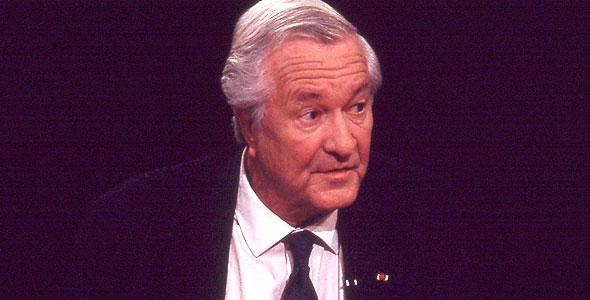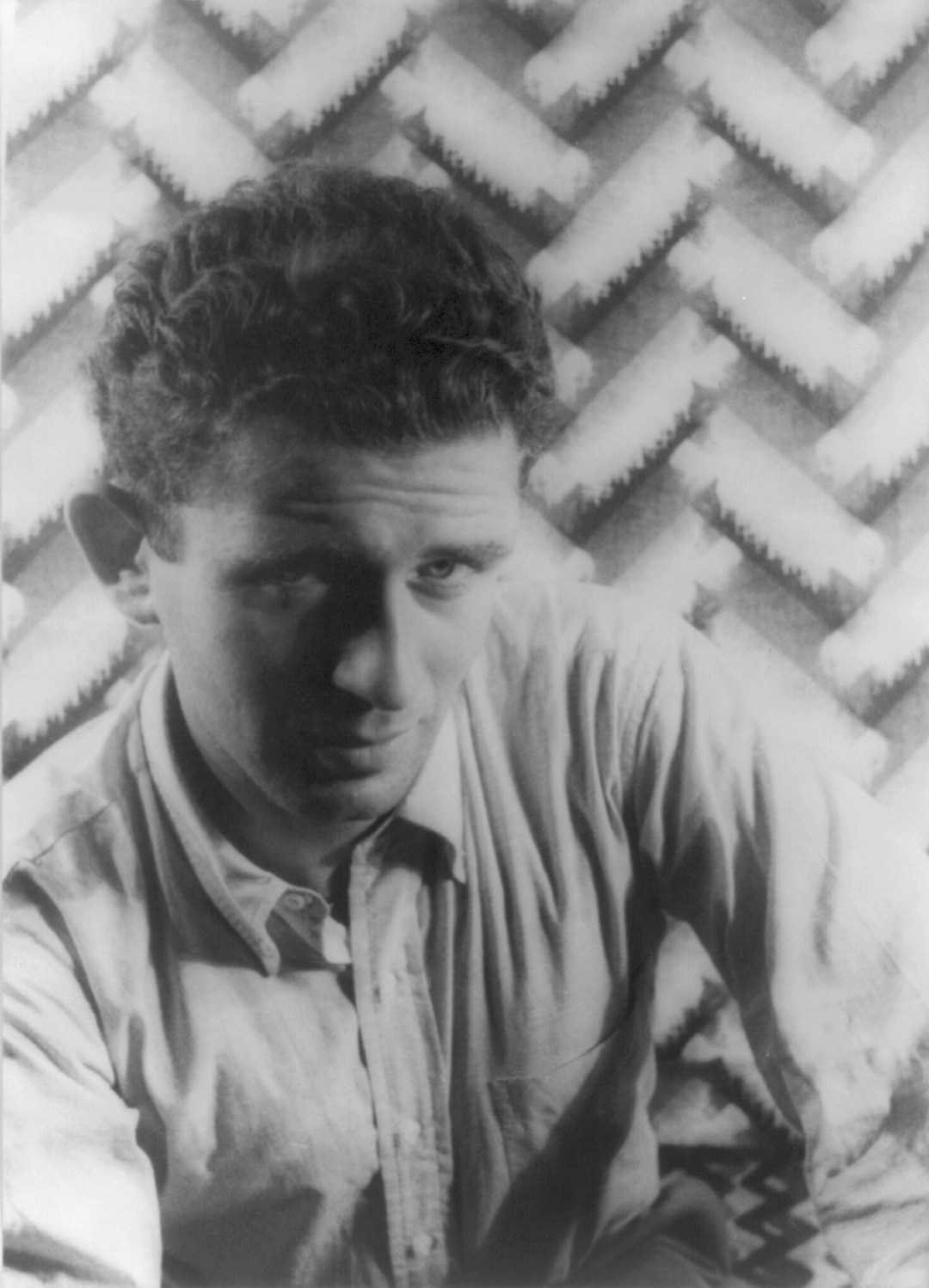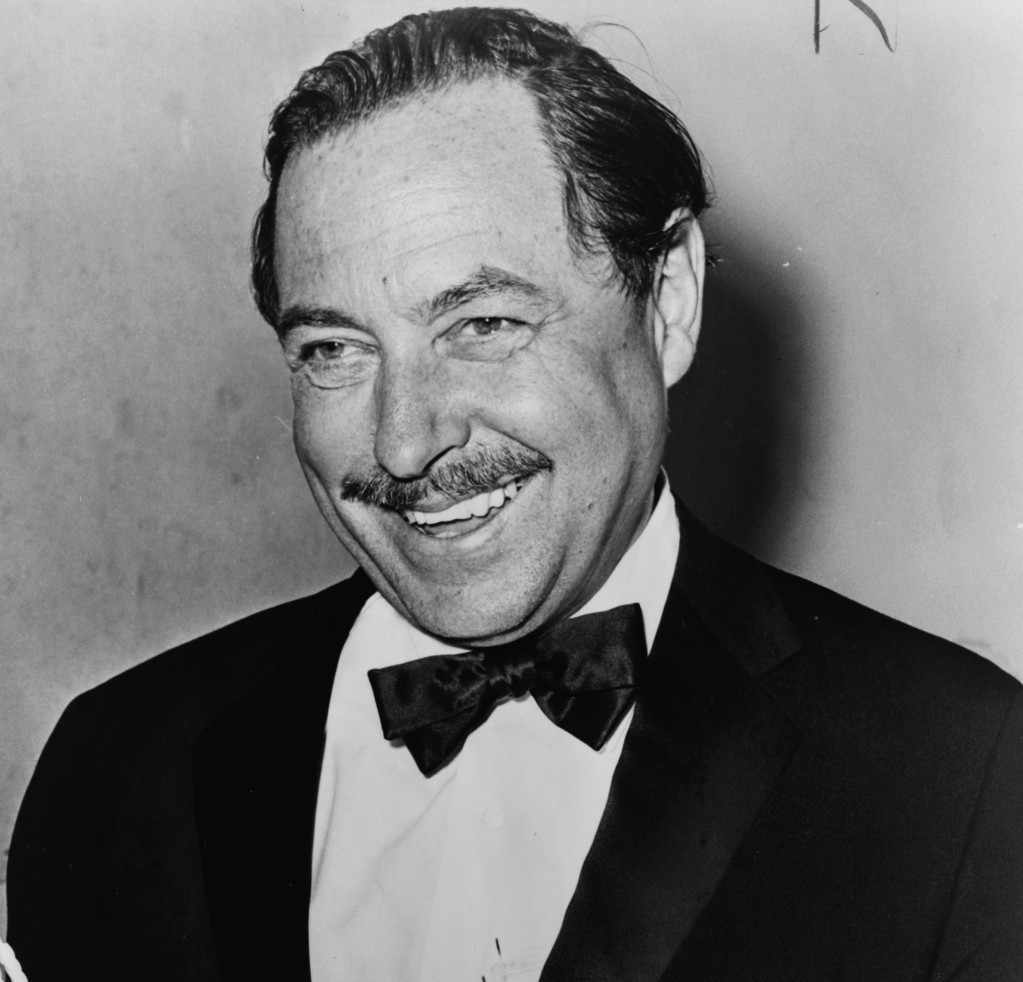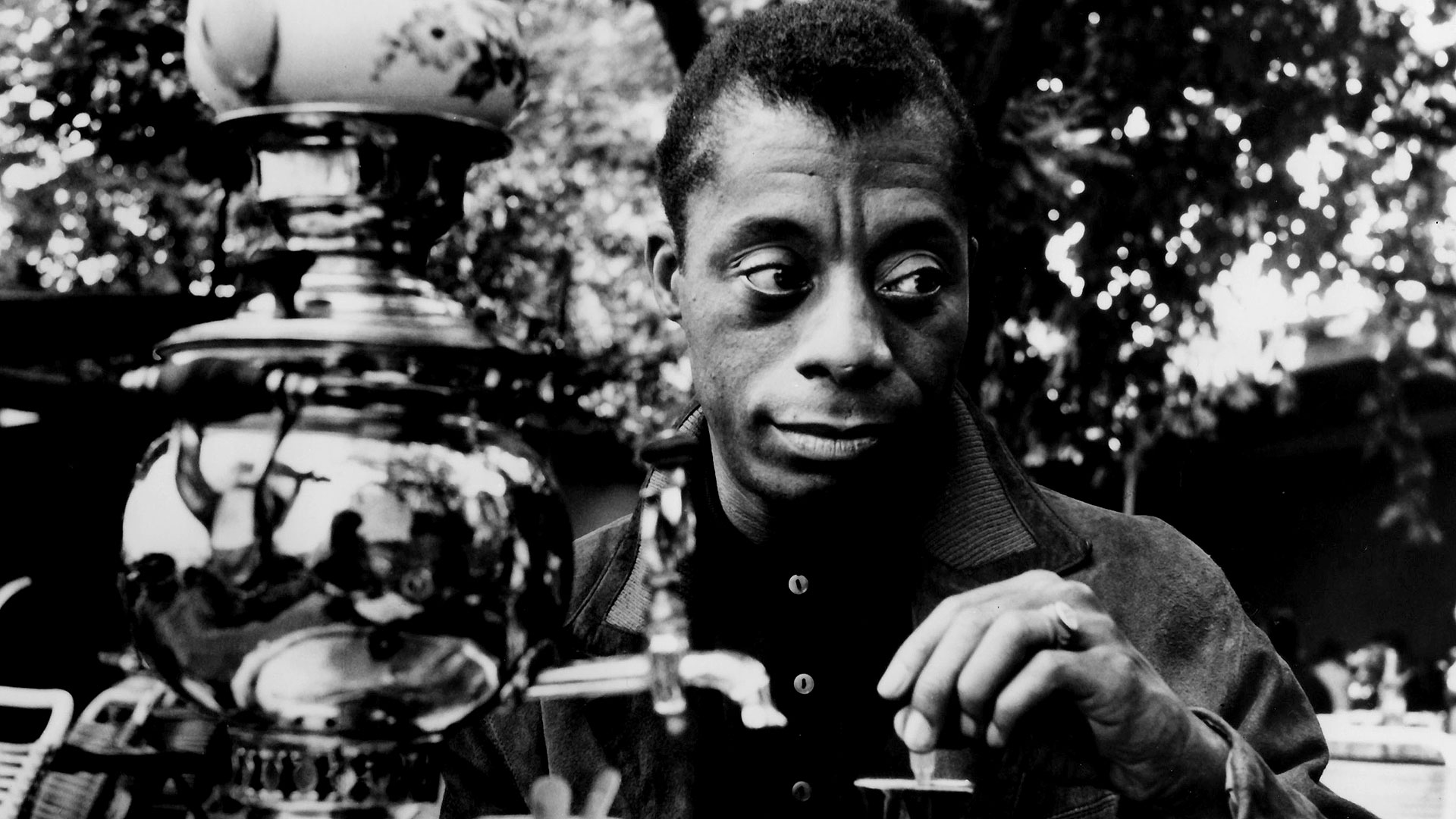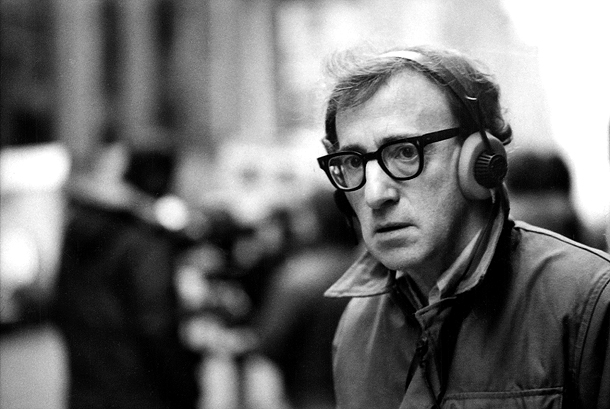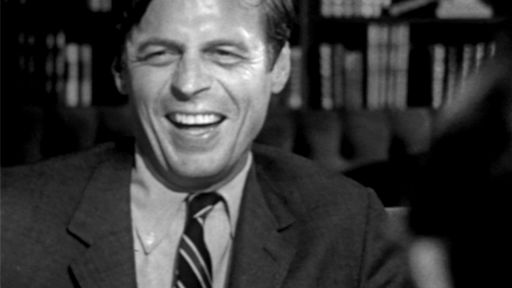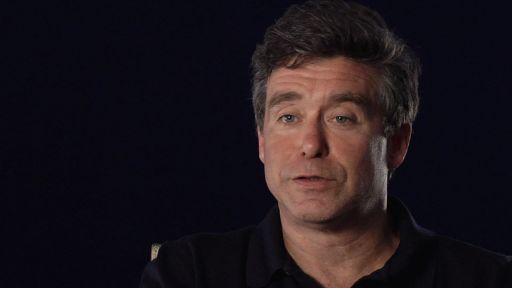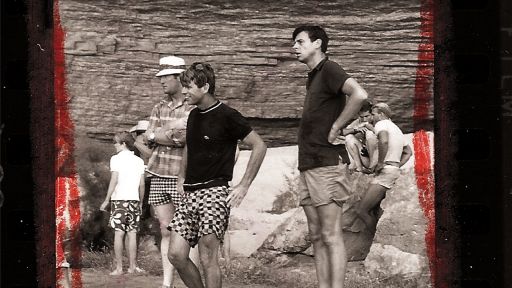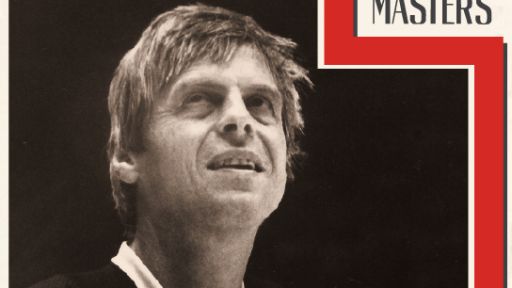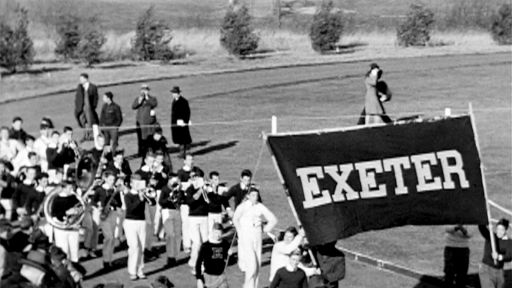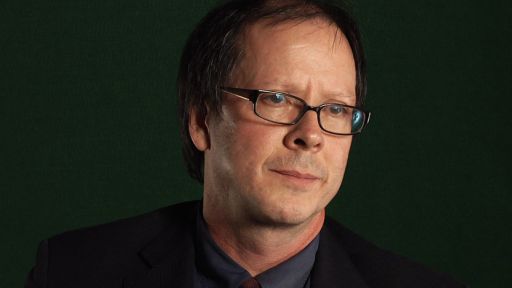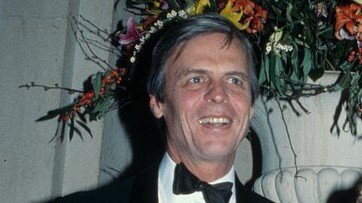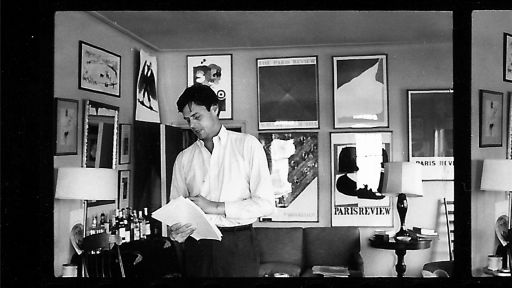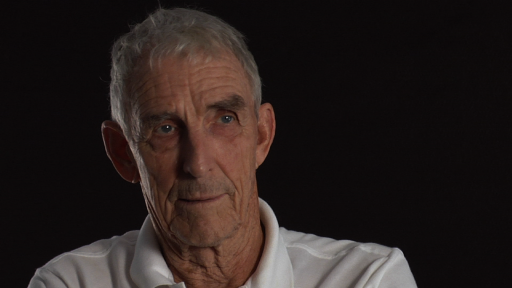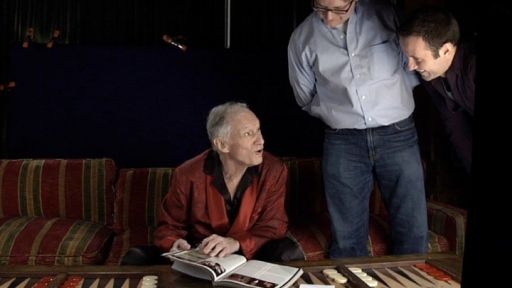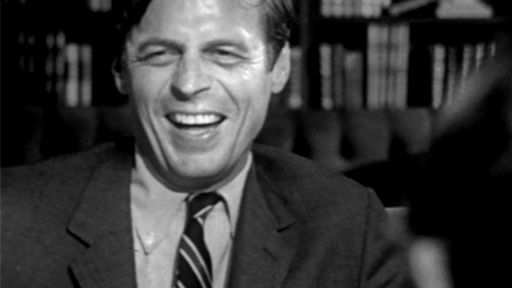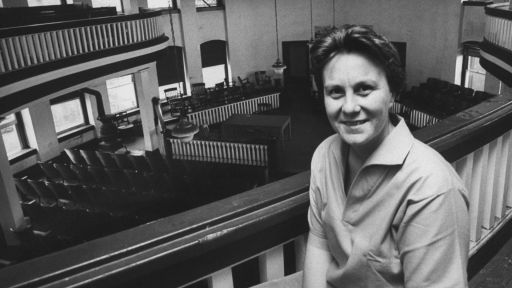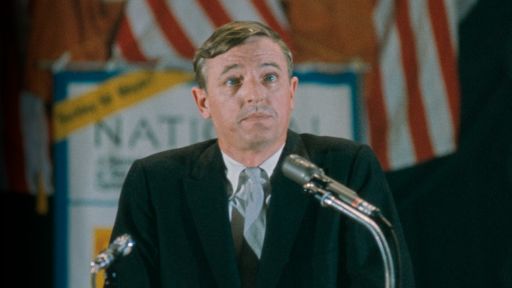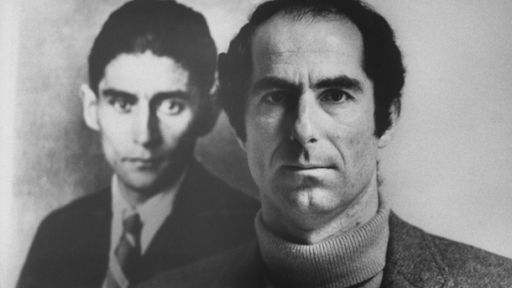American Master George Plimpton co-founded The Paris Review and was the literary magazine’s editor for 50 years, from the first edition in 1953 to his death in September 2003. A masterstroke of The Paris Review was the “Art of Fiction” interview that examined the act of writing. According to Philip Gourevich, editor of The Paris Review from 2005 to 2010, Plimpton invented a new form of interview, which was “a dramatic form of a Q&A that was drawn entirely from transcripts, but in many ways was the idealized conversation that one, as a reader, thinks, ‘oh, if I could just talk to that writer I admire so much.’”
Here are just a few of the conversations and connections between American Masters writers, The Paris Review and George Plimpton, an American Master himself.
William Styron
William Styron was friendly with the founding members of The Paris Review and had gained acclaim with his debut novel, Lie Down in Darkness (1951), by the time the magazine was founded. For its first issue he wrote a humorous “Letter to the Editor” that revealed the magazine’s editorial process and mission.
In 1954 at the age of 28, Styron was the first “young writer” interviewed in The Art of Fiction section, by founders Peter Matthiessen and George Plimpton. Plimpton interviewed Styron again in 1999. William Styron: The Way of the Writer premiered on American Masters in January 2006.
Philip Roth
Philip Roth’s first published short story, “The Conversion of the Jews,” appeared in The Paris Review. The story had been plucked from the pile of unsolicited manuscripts by Rose Styron, wife of novelist William Styron and a reader for the magazine at the time.
The magazine also published Roth’s first novella, Good-bye Columbus, which launched Roth’s career in 1959.
Roth’s Art of Fiction interview in The Paris Review was conducted by Hermione Lee in 1983 and 1984, between his finishing The Anatomy Lesson and starting new work.
American Masters Philip Roth: Unmasked (available online) features Roth freely discussing intimate aspects of his life and art. The film by William Karel premiered in March 2013 in honor of Roth’s 80th birthday.
Ernest Hemingway
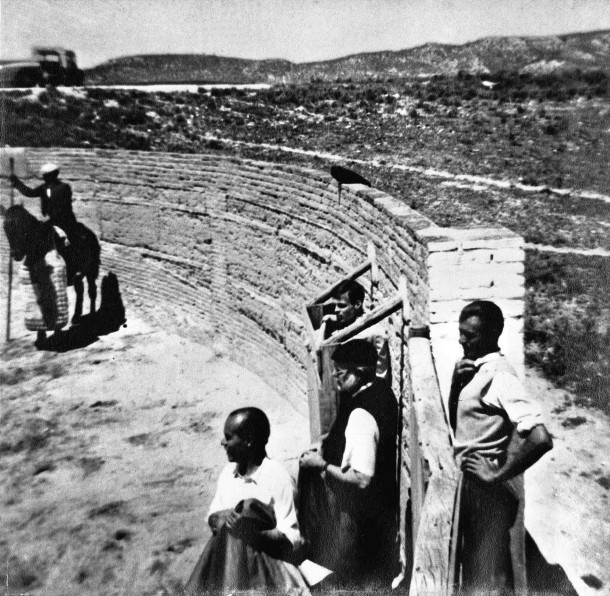
George Plimpton (center and top) and Ernest Hemingway (center) at bullfight, as seen in “American Masters: Plimpton! Starring George Plimpton as Himself.” Photo courtesy of the Plimpton Estate
An important early scene in Plimpton! Starring George Plimpton as Himself, and a major early coup for The Paris Review, was George Plimpton’s interview with the testy Ernest Hemingway. To this day, many of the quotes one hears or reads by Hemingway about writing come from Plimpton’s interview with “Papa.”
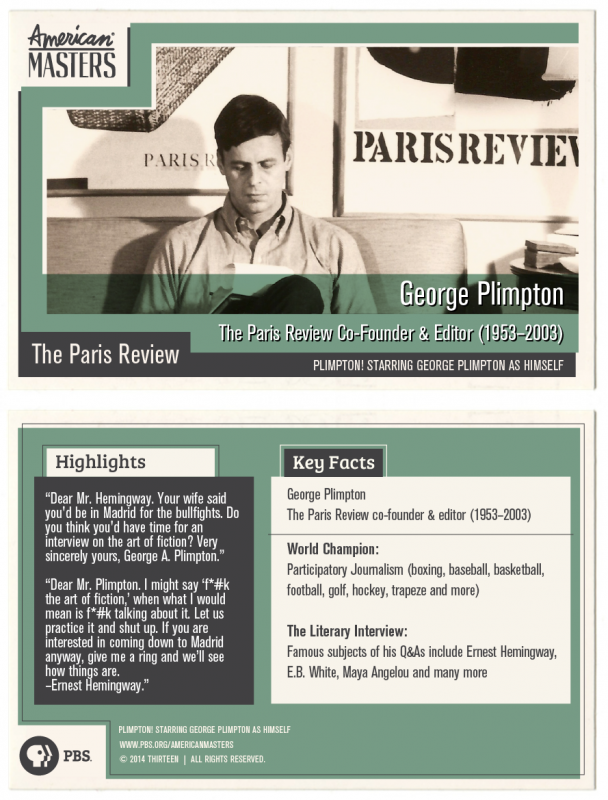
George Plimpton Trading Card by American Masters
Lillian Hellman
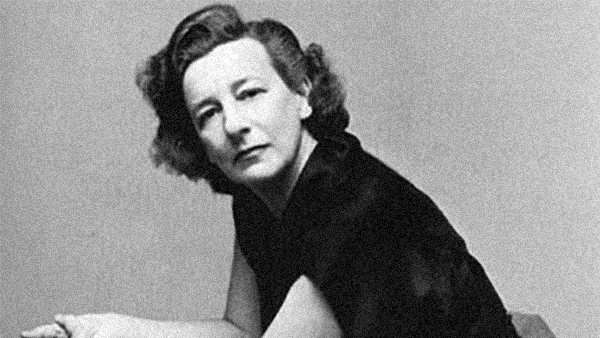
Lillian Hellman (1905-1984) was a smoker, a drinker, a lover, and a fighter. While her plays such as The Children’s Hour were a constant challenge to injustice, her memoirs were personal accounts of the exciting and turbulent life behind the art. In 1969 Hellman published An Unfinished Woman, the first of three memoirs that dealt with her social, political, and artistic life. At her house on Martha’s Vineyard, she was interviewed by The Paris Review for The Art of Theater in 1965.
Gore Vidal
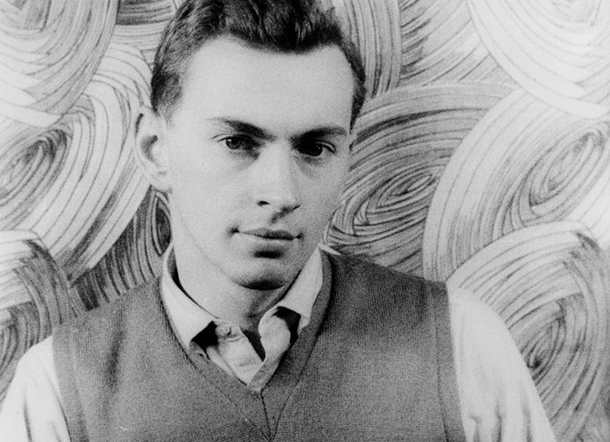
Gore Vidal, 1948 | By Carl Van Vechten | Library of Congress
Gore Vidal (1925-2012) was a classmate of George Plimpton’s at Phillips Exeter Academy and received his own Art of Fiction interview in the Fall 1974 edition of The Paris Review. American Masters: The Education Of Gore Vidal, directed by Deborah Dickson, premiered in July 2003.
Ralph Ellison
The Invisible Man was Ralph Ellison’s first published novel and it won him the National Book Award in 1953. Two years later, his Art of Fiction interview with the Paris Review took place while he was visiting Paris. American Masters aired Ralph Ellison: An American Journey in February 2002.
Truman Capote
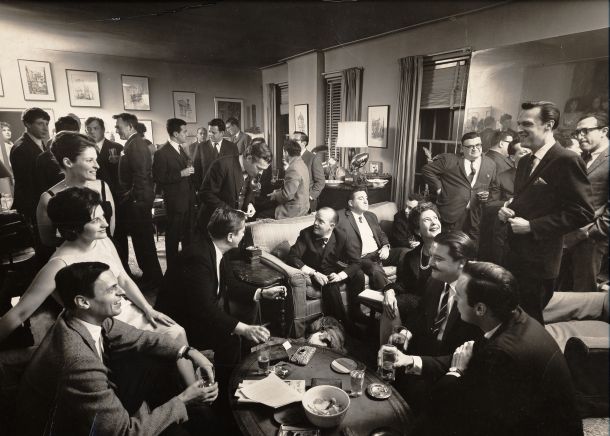
George Plimpton (bottow left) and Truman Capote (sitting far left on couch) at a cocktail party in Plimpton’s apartment, as seen in “American Masters: Plimpton! Starring George Plimpton as Himself.” Photo: Cornell Capa/Laemmle Zeller Films
Though not a native New Yorker like George Plimpton, Truman Capote (1924-1984) took to it like one, capturing something quintessentially New York with Breakfast at Tiffany’s. He gave his Art of Fiction interview to The Paris Review in 1957, from his brownstone in Brooklyn Heights. George Plimpton authored a biography on Capote, titled, Truman Capote: In Which Various Friends, Enemies, Acquaintances and Detractors Recall His Turbulent Career (1997).
Norman Mailer
Like The Paris Review, the American Masters film on Norman Mailer, Norman Mailer on Norman Mailer (2001), originated in France before coming to the U.S. The film was first produced for French television as a three-part program. Mailer, who wrote a biography on Marilyn Monroe, narrates portions of American Masters: Marilyn Monroe: Still Life (2006), directed by Gail Levin. In the video above, Mailer reads an excerpt on Monroe and identity (photos by Roy Schatt).
Normal Mailer gave two interviews in The Paris Review — one in 1964 and one in 2007, the latter in which he shares an anecdote about crossing paths with Philip Roth at George Plimpton’s memorial in 2003.
Katherine Anne Porter
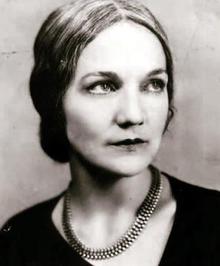 Katherine Anne Porter (1890-1980), a complex and deeply psychological writer, was the subject of Katherine Anne Porter: The Eye of Memory during American Master’s debut season in 1986. It includes interviews with Porter contemporaries Robert Penn Warren and Eudora Welty, as well as with other friends and family members. Often concerned with the themes of justice, betrayal, and the unforgiving nature of the human race, Porter’s writings occupied the space where the personal and political meet. Ship of Fools (1962) was her only novel and an instant success. Her Art of Fiction interview appeared in The Paris Review in 1963.
Katherine Anne Porter (1890-1980), a complex and deeply psychological writer, was the subject of Katherine Anne Porter: The Eye of Memory during American Master’s debut season in 1986. It includes interviews with Porter contemporaries Robert Penn Warren and Eudora Welty, as well as with other friends and family members. Often concerned with the themes of justice, betrayal, and the unforgiving nature of the human race, Porter’s writings occupied the space where the personal and political meet. Ship of Fools (1962) was her only novel and an instant success. Her Art of Fiction interview appeared in The Paris Review in 1963.
Tennessee Williams
Tennessee Williams (1911–1983) was featured in the first decade of American Masters in 1994 with the film Tennessee Williams: Orpheus of the American Stage. The playwright, novelist and screenwriter who wrote A Streetcar Named Desire, The Glass Menagerie and The Night of the Iguana among many other works gave an Art of Theater interview to The Paris Review in 1981.
James Baldwin
In 1948 James Baldwin moved to Paris and it was there that he wrote Go Tell It on the Mountain, Giovanni’s Room and Notes of a Native Son, and occasionally socialized with The Paris Review crew. He gave part of his Art of Fiction interview for The Paris Review in Paris in 1984.
American Masters James Baldwin: The Price of the Ticket by Karen Thorsen and Douglas K. Dempsey explores the life, works and beliefs of Baldwin as a writer and civil rights activist. Baldwin tells his own story about what it is to be born black, impoverished, gifted, and gay in a world that has yet to understand that “all men are brothers.”
Allen Ginsberg
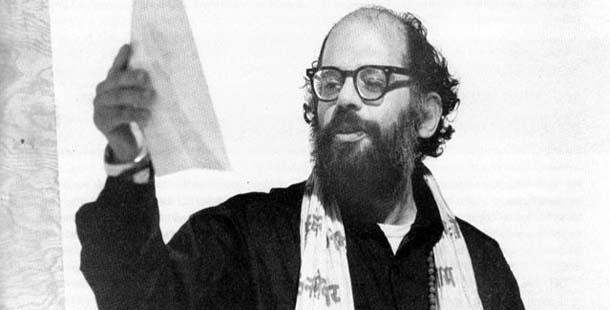
The Life and Times of Allen Ginsberg (1997) on American Masters looked at the poet who created what would be termed the Beat Generation movement with friends and fellow writers Jack Kerouac and William Burroughs. His famously damning comment on 1950s America was the epic poem “Howl.” The poetry of Allen Ginsberg (1926-1997) was published in The Paris Review, which interviewed him on The Art of Poetry in the spring of 1996.
Arthur Miller
The very first episode of the American Masters series, Private Conversations: On the Set of “Death of a Salesman” (1986), was an intimate and revealing look at the making of playwright Arthur Miller’s masterpiece for network television, starring Dustin Hoffman and John Malkovich, directed by Voelker Schlondorff. In 2003, Arthur Miller himself was a subject of the American Masters film Arthur Miller, Elia Kazan and The Blacklist: None Without Sin, and examination of the tensions created by the anti-communist political crusade of McCarthyism.
Arthur Miller’s Art of Theater interview with Olga Carlisle and Rose Styron appeared in The Paris Review in the summer of 1966. He was interviewed again in 1999, the 50th anniversary of Death of a Salesmen and the year its Broadway revival won a Tony Award.
Woody Allen
Robert Weide followed the notoriously private Woody Allen over a year and a half to create the ultimate film biography for American Masters in 2011, Woody Allen: A Documentary. The self-dismissive filmmaker was interviewed by Michiko Kakutani for The Paris Review’s Art of Humor in 1995.

